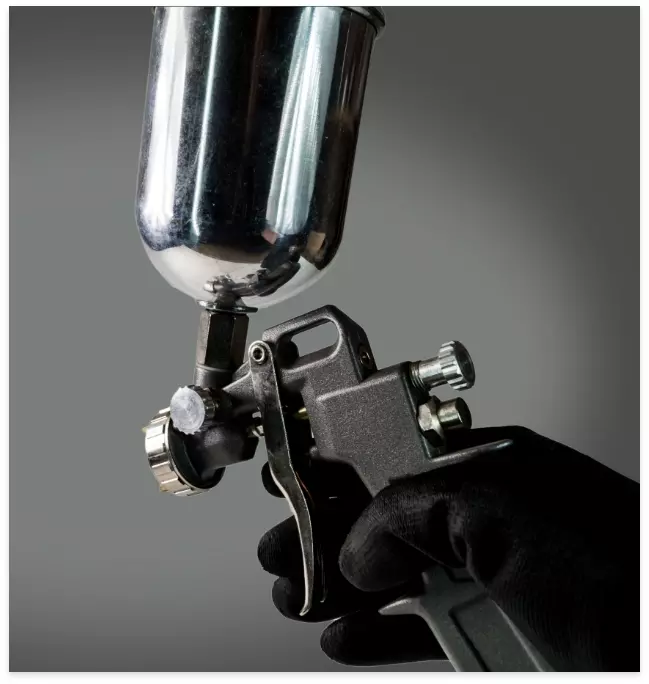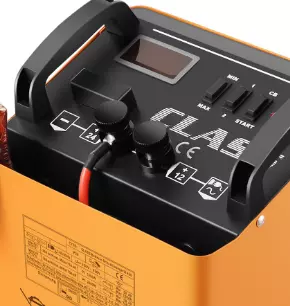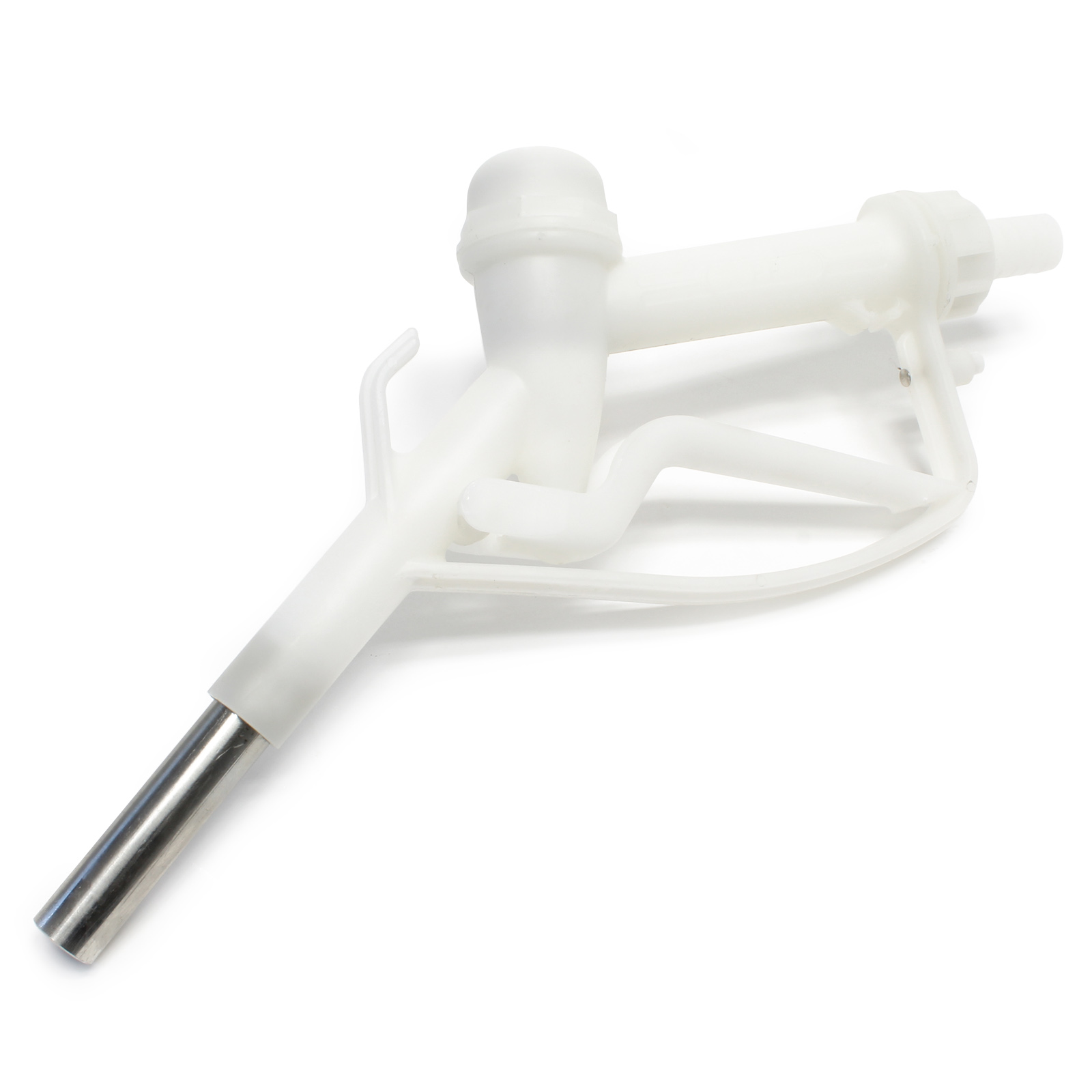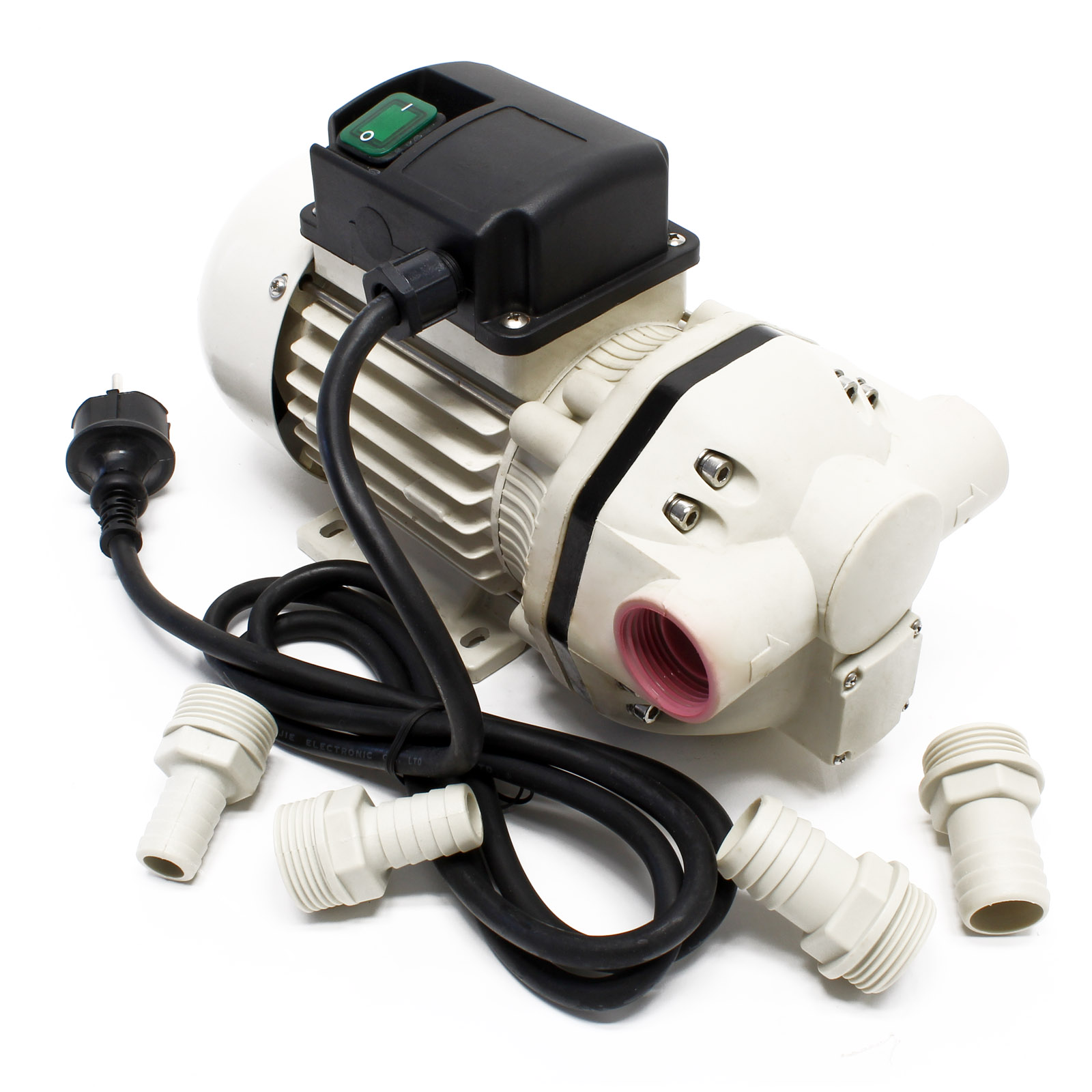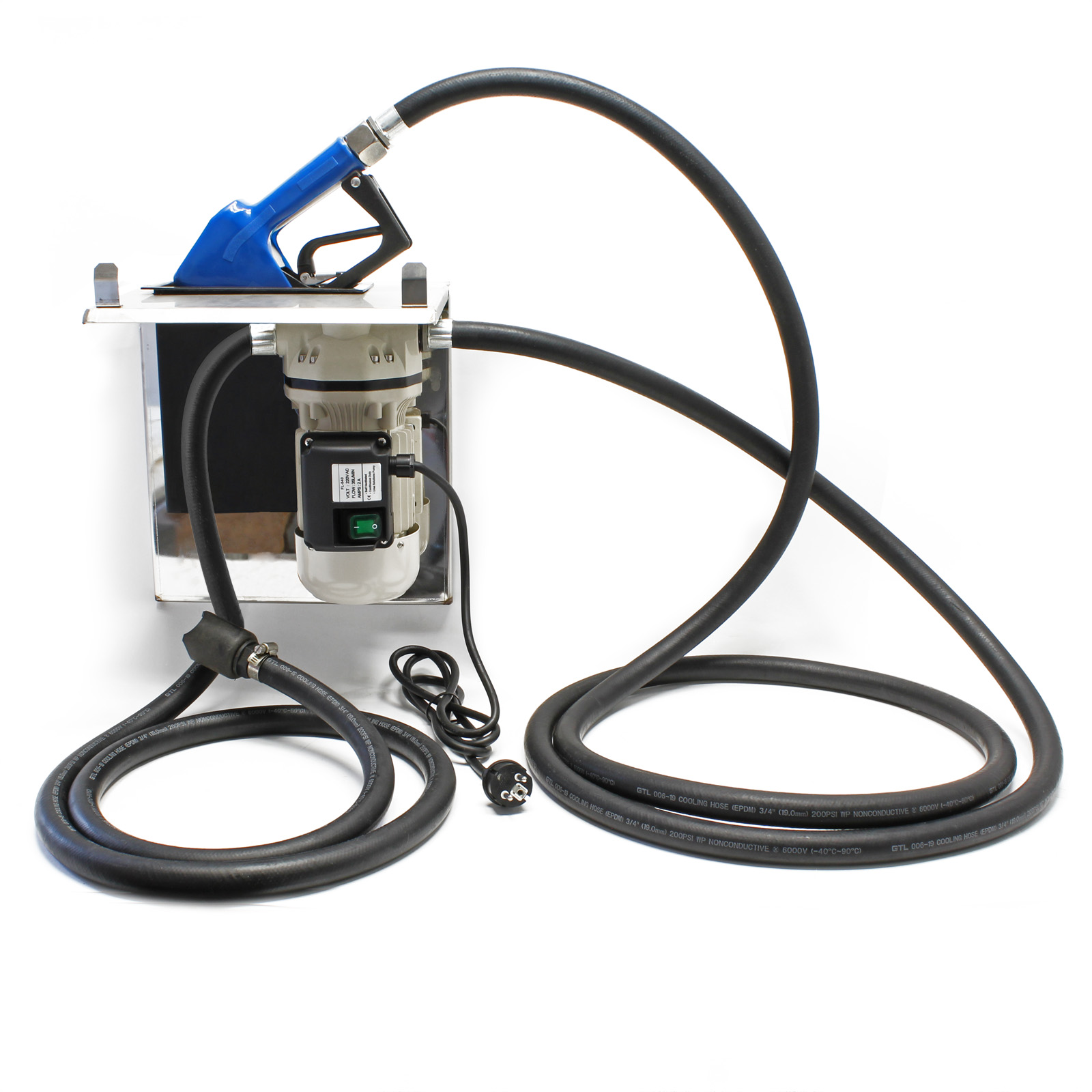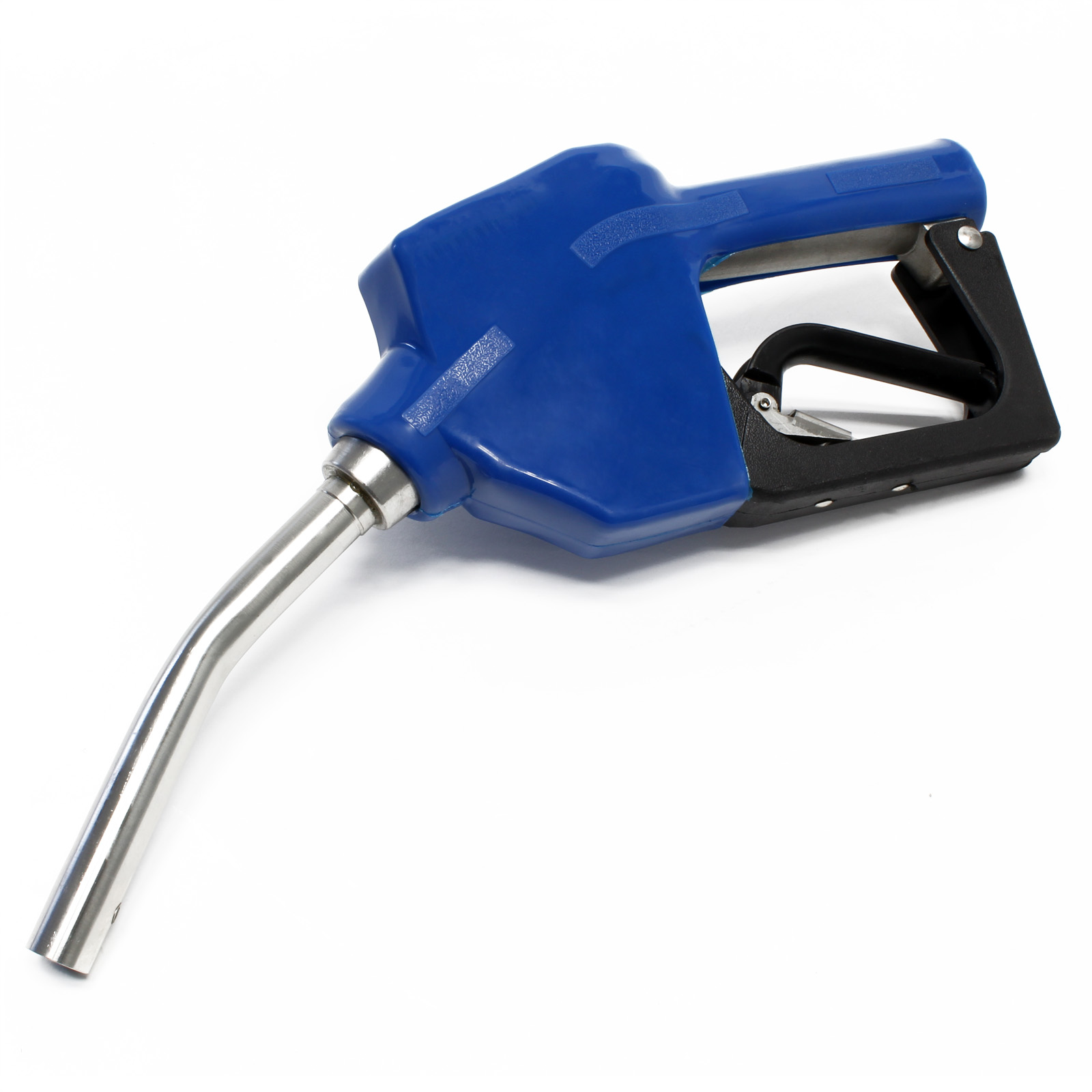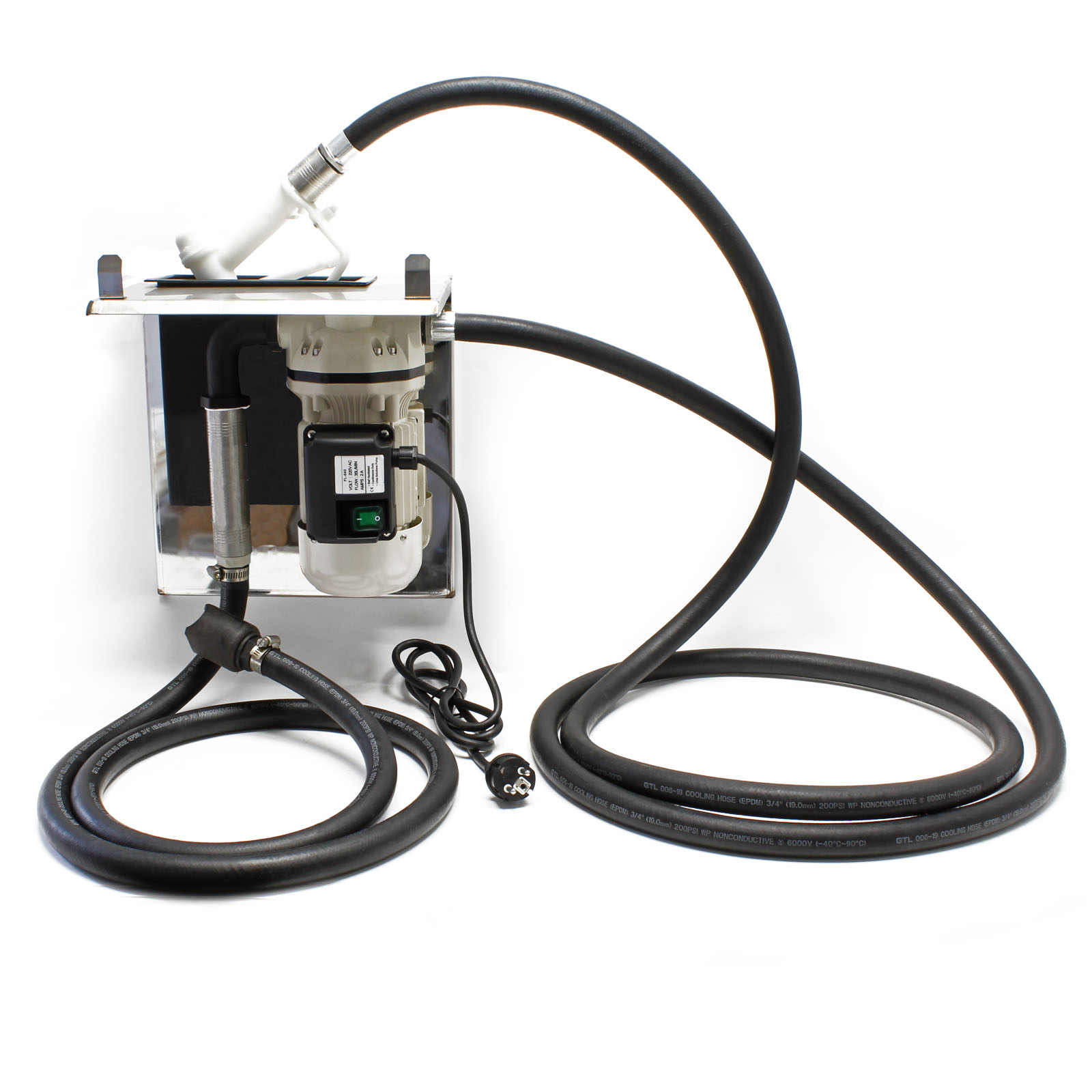Available, delivery time: 2 - 3 days
• Made of plastic
• For AdBlue®
• 0-60 l/min
Available, delivery time: 2 - 3 days
• 230 V
• Flow rate 40 l/min - 400W
• Delivery head 15 m
Available, delivery time: 2 - 3 days
• Special pump 230 V
• Max. flow rate 40 l/min – 400 W
• Max. head 15 m
• Incl. base plate
• Incl. stainless steel tap
• Incl. hoses/connection pieces
Available, delivery time: 2 - 3 days
• Automatic cut-off
• For AdBlue®
• 0-60 l/min
Available, delivery time: 2 - 3 days
• Special pump 230 V
• Max. flow rate 40 l/min - 400W
• Max. head 15 m
• Incl. base plate
• Incl. pump nozzle plastic
• Incl. hoses and connection pieces
Reducing Agent Pumps AdBlue®
Reducing Agent Pumps AdBlue® are indispensable in modern diesel engines, especially those with selective catalytic reduction (SCR) systems. These pumps facilitate the injection of AdBlue®, a high-purity urea solution, into the exhaust stream to reduce nitrogen oxide (NOx) emissions, transforming them into harmless nitrogen and water vapor. Essential for meeting stringent emission regulations, these pumps come in various types such as electric pumps, diaphragm pumps, and fuel transfer pumps. Each type is tailored to specific needs and applications, ensuring optimal performance and compliance. Proper understanding and use of these pumps are vital for maintaining vehicle efficiency and environmental standards, making them a cornerstone in emission control.
Reducing Agent Pumps AdBlue® are particularly crucial in ensuring that vehicles meet the Euro 6 emission standards, which aim to reduce NOx emissions by up to 67%. These pumps are designed to withstand the harsh conditions under the hood, including exposure to high temperatures and corrosive substances. The use of AdBlue® not only helps in reducing environmental pollution but also improves fuel efficiency, leading to cost savings in the long run. Furthermore, advancements in pump technology have led to the development of more compact and efficient designs, making it easier to integrate them into various types of vehicles and machinery.

Urea Delivery Pump for Efficient AdBlue® Handling
Among the notable products in this category is the Urea Self Priming Delivery Pump 40l/min 230V/400W, AUS32. Designed for rigorous demands, this pump offers a self-priming feature for reliable start-up and a high flow rate of 40 liters per minute for quick refilling. Its construction is robust, built to withstand the corrosive nature of AdBlue®, ensuring durability and consistent performance. This pump is suitable for both commercial fleets and individual vehicles, making it a versatile solution for AdBlue® dispensing needs. Its efficiency and reliability contribute to maintaining emission standards, providing a dependable option for those looking to manage their AdBlue® supplies effectively.
The Urea Self Priming Delivery Pump is equipped with advanced features such as an automatic shut-off mechanism to prevent overfilling, and a built-in filtration system to ensure the purity of AdBlue®. Its compact design allows for easy installation and integration into existing systems. Additionally, the pump is designed to operate with minimal noise, making it ideal for use in environments where noise pollution is a concern. With its high flow rate and reliable performance, this pump is an excellent choice for fleet operators who need to manage large volumes of AdBlue® efficiently. The pump's durability and low maintenance requirements make it a cost-effective solution for long-term use.Reducing Agent Pumps AdBlue® are used in various applications, primarily in vehicles equipped with SCR systems. These systems are found in cars, trucks, buses, and some agricultural and construction machinery. The primary role of these pumps is to deliver AdBlue® from the storage tank to the exhaust stream, where it helps reduce harmful NOx emissions into harmless nitrogen and water vapor. Beyond automotive applications, these pumps are also employed in industrial settings with stationary engines and machinery using SCR systems. Their versatility and critical role in emission control make them indispensable across multiple sectors, ensuring compliance with environmental regulations and enhancing engine performance.
In the transportation sector, Reducing Agent Pumps are essential for heavy-duty trucks and buses that cover long distances and require frequent refilling of AdBlue®. These pumps are also crucial in off-highway applications such as mining, where machinery operates under extreme conditions and requires robust emission control solutions. In marine applications, AdBlue® pumps help ships comply with international maritime emission regulations. Additionally, these pumps are used in power generation facilities where diesel generators need to meet stringent emission standards. The widespread use of Reducing Agent Pumps across different industries highlights their importance in reducing environmental impact and promoting sustainability.
Advanced Urea Delivery Systems
Another significant product in this category is the Urea Self Priming Delivery Pump 40l/min 230V/400W Feed Pump and Nozzle. This system includes a powerful pump and a nozzle for precise dispensing. The feed pump ensures a steady AdBlue® flow, while the nozzle allows for controlled application. This precision is crucial for meeting stringent emission standards, especially in scenarios requiring exact dosing. The system's durable construction and efficient performance make it a popular choice for commercial and personal use, ensuring that vehicles and machinery remain compliant with environmental regulations. Its reliability and precision contribute significantly to effective AdBlue® management.

How to Top Up AdBlue® at a Petrol Station?
Topping up AdBlue® at a petrol station is straightforward. First, locate the AdBlue® pump, typically separate from diesel pumps. Find the AdBlue® filler cap on your vehicle, open it, and insert the pump nozzle. Pump the required amount of AdBlue® into the tank, being careful not to overfill. Once done, securely close the filler cap. This process ensures that your vehicle's SCR system continues to function efficiently, helping to maintain emission standards. Regularly checking and topping up AdBlue® as needed is crucial for the proper operation of your diesel vehicle, ensuring long-term compliance and performance.
Many petrol stations now offer AdBlue® pumps alongside traditional fuel pumps, making it convenient for drivers to top up their AdBlue® tanks during routine fuel stops. It is important to use only the designated AdBlue® pumps to avoid contamination and ensure the purity of the solution. When topping up, make sure to handle the AdBlue® carefully, as it can be corrosive to certain materials. Always wear protective gloves and wash any spills immediately with water. By following these simple steps, drivers can ensure their vehicles remain compliant with emission regulations and continue to perform optimally.Is AdBlue® Cheaper at the Pump?
AdBlue® is often cheaper at the pump compared to purchasing pre-packaged containers. Bulk buying at the pump reduces packaging and transportation costs, leading to lower per-liter prices. To maximize savings, compare prices at different petrol stations and look for those offering AdBlue® at the pump. This cost-effective approach ensures you can maintain your vehicle’s SCR system efficiently without incurring unnecessary expenses. Keeping an eye on market prices and taking advantage of bulk buying opportunities can make a significant difference in overall maintenance costs.
In addition to cost savings, purchasing AdBlue® at the pump can also be more environmentally friendly, as it reduces the need for single-use plastic containers. This helps to minimize waste and lower the environmental impact of AdBlue® usage. Many commercial fleet operators prefer to buy AdBlue® at the pump to streamline their operations and reduce downtime. By integrating AdBlue® refills into regular fueling schedules, businesses can ensure their vehicles remain on the road and compliant with emission standards. Overall, buying AdBlue® at the pump offers numerous benefits, from cost savings to environmental sustainability.

Adding AdBlue® to a Diesel Vehicle
Adding AdBlue® to a diesel vehicle is a straightforward process. First, locate the AdBlue® filler cap, which is typically situated next to the diesel filler cap, usually in the same compartment or under the fuel flap. Open the AdBlue® tank cap and insert the AdBlue® nozzle. Carefully dispense the AdBlue® into the tank, ensuring you do not overfill. Most modern diesel vehicles have an indicator on the dashboard that will notify you when the AdBlue® tank is full or needs refilling. The indicator might show messages like "AdBlue® level low" or "AdBlue® dosing malfunction" if there’s an issue.
After filling, securely close the cap and ensure there are no spills. It’s important to handle AdBlue® carefully as it can be corrosive to certain materials. Using gloves and cleaning up any spills with water is advisable. This process ensures the SCR system in your diesel vehicle continues to operate efficiently, reducing harmful emissions and keeping your vehicle compliant with emission regulations. Regularly checking and topping up AdBlue® as needed is essential for the optimal performance of the vehicle’s emission control system. Additionally, consult your vehicle's manual for any specific instructions or recommendations regarding AdBlue® usage and maintenance to ensure you follow best practices.
What Happens if You Put AdBlue® in Your Diesel Tank?

Immediate Effects:
If AdBlue® is mistakenly added to the diesel tank, it can cause severe damage to the fuel system. AdBlue® is not compatible with diesel fuel, leading to clogging and corrosion of fuel injectors and pumps. Immediate action is necessary to prevent long-term damage. Being vigilant during refueling can save time and money by preventing costly errors and ensuring the longevity of your vehicle's fuel system.

Action Required:
If AdBlue® is accidentally added to the diesel tank, do not start the engine. Contact a professional mechanic immediately to drain and clean the fuel system. Prompt intervention can mitigate potential damage, avoiding costly repairs and ensuring the vehicle's return to optimal operation. It's crucial to address the issue quickly to minimize the risk of extensive damage to the fuel system.

Prevention:
To avoid this mistake, always double-check the filler caps and use clearly labeled AdBlue® and diesel containers. Many vehicles have differently shaped filler nozzles to help prevent such errors. Regular training and awareness can also help in minimizing the risk of such mistakes, ensuring safe and efficient vehicle maintenance.
Summary
Reducing Agent Pumps AdBlue® are crucial for the operation of diesel engines equipped with SCR systems. These pumps ensure the proper delivery of AdBlue®, reducing harmful NOx emissions and helping vehicles comply with environmental standards. With various pump types available, including electric and diaphragm pumps, users can find the right solution for their needs. Products like the Urea Self Priming Delivery Pump 40l/min 230V/400W and the advanced Feed Pump and Nozzle system offer reliable and efficient options for AdBlue® dispensing. Understanding the proper use and maintenance of these pumps is essential for vehicle performance and emission compliance. By ensuring proper AdBlue® management, these pumps contribute significantly to sustainable and efficient diesel engine operation.
In addition to their role in reducing emissions, these pumps also enhance the overall efficiency and longevity of diesel engines. Regular maintenance and proper usage of AdBlue® pumps can prevent costly repairs and downtime, ensuring that vehicles remain operational and compliant with emission regulations. As emission standards become more stringent, the importance of high-quality AdBlue® pumps continues to grow. Investing in reliable and efficient AdBlue® pumps is not only beneficial for the environment but also for the long-term performance and sustainability of diesel engines. By staying informed about the latest advancements in pump technology and best practices for AdBlue® management, users can ensure their vehicles and machinery operate at peak efficiency while meeting all regulatory requirements.













